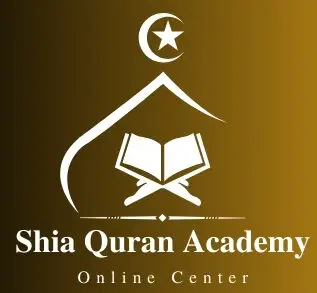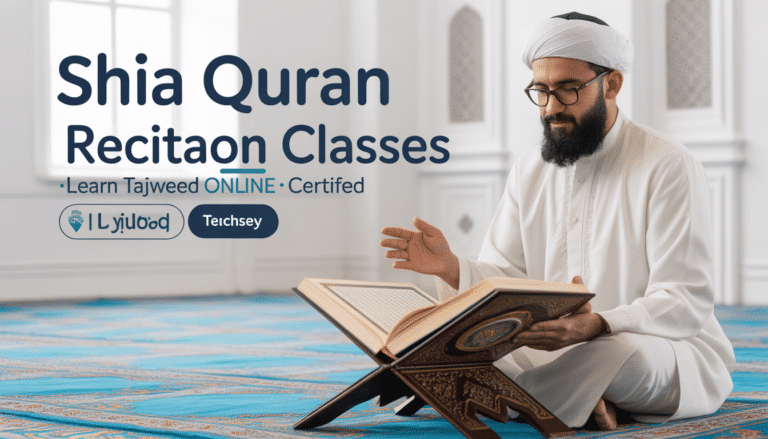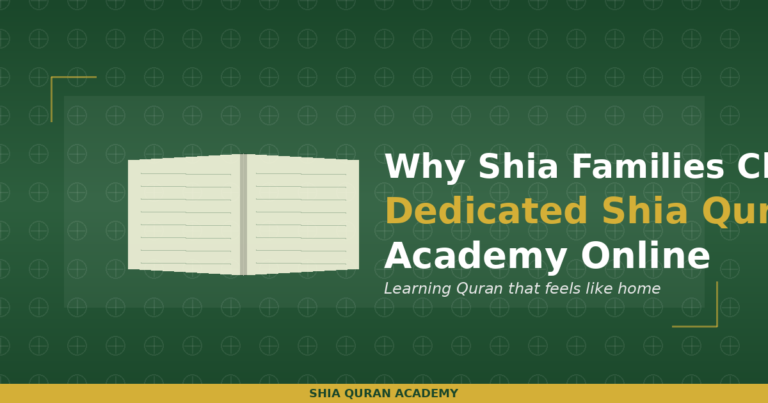Illuminating the Blessed Quran in Shia Islam: Essential Divine Guidance Through the Sacred Lens of Ahl al-Bayt
Understanding the Profound Connection Between the Holy Book and the Prophet’s Family
The Quran stands as the immutable word of Allah (SWT) in Shia Islam—the final divine revelation and the ultimate source of spiritual, moral, and legal guidance for humanity. For Shia Muslims worldwide, this sacred text cannot be separated from the teachings of the Ahl al-Bayt (the family of Prophet Muhammad), who are revered as its divinely appointed interpreters. This comprehensive guide explores the central position of the Quran in Shia doctrine and practice, illuminating its enduring significance across global communities.

The Divine Authority of the Quran in Shia Islam and its Tradition
In Shia Islam, the Quran represents the cornerstone of Shia faith, serving as the primary foundation for Islamic law (Sharia) and ethical principles. Several pivotal verses emphasize its divine authority and infallibility:
“This is the Book about which there is no doubt, a guidance for those conscious of Allah.” (Surat Al-Baqarah 2:2)
“Indeed, it is We who sent down the Quran, and indeed, We will be its guardian.” (Surah Al-Hijr 15:9)
Shia scholars emphasize that the preservation and authentic interpretation of the Quran are inseparably linked to the Ahl al-Bayt, as explicitly stated in the widely acknowledged Hadith of Thaqalayn:
“I leave you two weighty things: the Quran and my progeny. If you adhere to them, you will never go astray.” (Sahih Muslim)
This foundational hadith establishes what Shias consider the divine mandate for understanding the Quran through the guidance of the Prophet’s family.
The Inseparable Bond: Quran and Ahl al-Bayt
According to Shia theology, the Ahl al-Bayt possess unique spiritual insight as the rightful successors of Prophet Muhammad (PBUH). They alone hold the comprehensive knowledge needed for authoritative interpretation (tafsir) and deeper exegesis (ta’wil) of the Quranic text. During Online Quran lessons at any Shia Online Quran Academy, one has to learn the connection between the holy Quran and the holy Prophet’s progeny. The Quran itself alludes to their exalted status:
“Allah intends only to remove from you the impurity [of sin], O people of the [Prophet’s] household, and to purify you with [extensive] purification.” (Surah Al-Ahzab 33:33)
Imam Ali (AS), the first Shia Imam and cousin of the Prophet, eloquently articulated this special relationship:
“The Quran is guidance for humanity, but it is only through us [Ahl al-Bayt] that its truths can be comprehended.” (Nahj al-Balagha)
This perspective distinguishes Shia Quranic understanding from other interpretative traditions in Islam, creating a rich intellectual heritage of textual analysis guided by the Prophet’s family.
The Living Quran: Practical Implementation in Shia Communities
Across diverse Shia communities in North America, Europe, and beyond, the Quran remains a transformative force shaping daily life and spiritual practice:
Daily Devotion and Worship
- Ritual Prayer (Salat): The five daily prayers incorporate specific Quranic recitations, with many Shias memorizing substantial portions of the text. Learn the true and correct way of offering Shia Namaz and how to develop the love of the Ahulbayt A.S at a trusted Online Quran Academy
- Ramadan Observance: The holy month features intensive Quranic study, complete recitations (khatm), and community-based reflection sessions
- Personal Supplication (Dua): Many daily supplications integrate Quranic verses and teachings. Many enroll their children in Online Quran Classes where they learn different duas and Ziaraat of the Masoomen A.S.
Commemorative Traditions
- Ashura Observances: Quranic themes of justice, sacrifice, and steadfastness are central during the commemoration of Imam Hussain’s martyrdom
- Religious Gatherings (Majalis): Regular community assemblies feature Quranic recitation and exegesis based on Ahl al-Bayt traditions
- Night of Destiny (Laylat al-Qadr): Special vigils honour the night when the Quran was first revealed
Ethical and Legal Guidance
- Jurisprudential Framework: Shia maraji’ (sources of emulation) derive religious rulings primarily from the Quran and the authenticated traditions of the Ahl al-Bayt
- Moral Development: The Quranic emphasis on justice, compassion, and intellectual pursuit shapes personal and communal ethics
- Conflict Resolution: Quranic principles guide family and community dispute resolution, emphasizing reconciliation and fairness
Contemporary Relevance in Western Societies
For Shia communities in the United States, United Kingdom, Canada, and European nations, the Quran offers timeless guidance for navigating modern challenges:
Social Justice Advocacy
The Quranic imperative for justice inspires many Shia communities to engage in social justice initiatives, addressing inequality, discrimination, and human rights issues:
“O you who believe! Stand firmly for justice, as witnesses to Allah, even if it be against yourselves, your parents, or your relatives.” (Surah An-Nisa 4:135)
Interfaith Dialogue
Drawing on Quranic principles of respect for religious diversity, Shia organizations actively participate in interfaith dialogues and collaborative humanitarian efforts:
“And if Allah had willed, He could have made you one nation, but [He intended] to test you in what He has given you; so compete with one another in good deeds.” (Surah Al-Ma’idah 5:48)
Scientific and Intellectual Pursuits
The Quranic encouragement of knowledge-seeking motivates educational excellence and scientific advancement within Shia communities:
“Are those who know equal to those who do not know?” (Surah Az-Zumar 39:9)
Authoritative Perspectives from Contemporary Scholars
Grand Ayatollah Sayyid Ali Sistani, one of the most influential contemporary Shia religious authorities, emphasizes:
“The Quran is not merely a historical text but a response to contemporary issues when read through the perspective of the Ahl al-Bayt.”
Similarly, Ayatollah Sayyid Ali Khamenei notes:
“The Quran contains solutions to all human problems across time. Its universal principles apply to every era when properly understood through the guidance of the Prophet’s household.”
Learning Resources for Deeper Understanding
For those seeking to deepen their understanding of the Quran from the Shia perspective, several authoritative resources provide valuable guidance:
Classical Tafsir (Exegesis) Works
- Tafsir al-Mizan by Allamah Sayyid Muhammad Husayn Tabataba’i
- Majma’ al-Bayan by Shaykh Abu Ali al-Fadl ibn al-Hasan al-Tabarsi
- Al-Burhan fi Tafsir al-Quran by Sayyid Hashim al-Bahrani
Contemporary Study Resources
- The Message of the Quran (with Shia commentaries)
- Digital platforms offering Quranic studies from the Ahl al-Bayt perspective
- Online Quran courses through established Shia educational institutions
Conclusion: The Enduring Spiritual Legacy
The Quran remains the beating heart of Shia spirituality and religious practice, providing a transformative blueprint for individual growth and community development. Through the interpretative lens of the Ahl al-Bayt, Shia Muslims worldwide connect with this divine text not merely as a historical document but as a living guide for contemporary challenges.
As Imam Jafar al-Sadiq (AS), the sixth Shia Imam, beautifully expressed:
“The Quran is the ever-fresh spring of guidance. Its wonders never cease, and its treasures are never exhausted.”
This enduring relationship between the divine text and its authorized interpreters continues to nourish Shia communities globally, offering spiritual sustenance and ethical direction in an ever-changing world.
Start Your Quranic Journey Today
At Shia Quran Academy Online, we offer comprehensive courses exploring the Quran through the authentic teachings of the Ahl al-Bayt. Join our global community of seekers and experience the transformative power of divine guidance interpreted through the Prophet’s blessed household. The Shia Quran Teachers online are committed to imparting all this knowledge to their Shia Pupils and help them enhance their knowledge about Shia Islam and the Ahlulbayt A.S.




